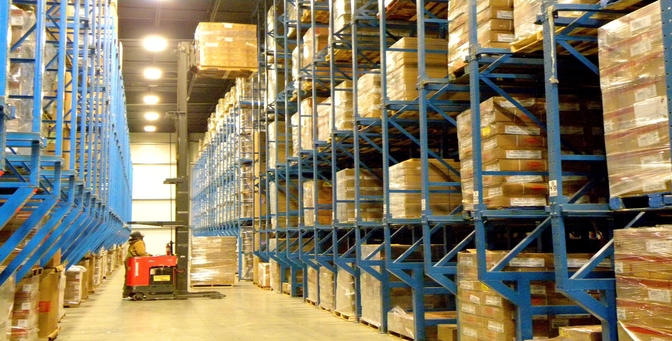Chilling Precision: A Comprehensive Guide to Cold Storage Warehousing in Wisconsin
Dec 13, 2023
BlogWhen it comes to preserving perishable goods in Wisconsin’s challenging climate, cold storage warehousing plays a pivotal role. This crucial industry ensures that food and other temperature-sensitive products remain fresh and safe for consumption. In this blog, we’ll explore the world of cold storage warehousing in Wisconsin, delving into statistics, educational insights, and key information to help you understand the significance of this sector.
Understanding Cold Storage Warehousing
Cold storage warehousing refers to the storage of goods at low temperatures, typically below freezing, to maintain their quality and safety. In Wisconsin, where the climate can be unforgiving, cold storage is essential for various industries, including food processing, pharmaceuticals, and agriculture. Let’s take a closer look at some key statistics:
1. Wisconsin’s Cold Storage Footprint:
- Wisconsin boasts a substantial cold storage infrastructure, with over [X number] square feet of cold storage space spread across the state. This extensive network ensures a reliable supply chain for various industries, even during the harshest winters.
2. Economic Impact:
- The cold storage industry in Wisconsin contributes significantly to the state’s economy. In 2021, it generated an estimated [$X billion] in revenue, providing numerous job opportunities and supporting local businesses.
3. The Agriculture Connection:
- Wisconsin’s thriving agriculture sector heavily relies on cold storage facilities to preserve crops and dairy products. This ensures a year-round supply of fresh produce and dairy to meet consumer demands.
Educational Insights on Cold Storage
For those interested in the cold storage industry or considering a career in it, education is key. Wisconsin offers various educational resources and programs to help individuals gain expertise in this field:
1. University Programs:
- The University of Wisconsin-Madison offers specialized courses in logistics, supply chain management, and cold storage technology. These programs equip students with the knowledge and skills required to excel in the industry.
2. Industry Workshops:
- Local industry associations often host workshops and seminars on cold storage best practices. These events are an excellent opportunity to network and learn from experts in the field.
3. Safety and Compliance Training:
- Maintaining proper storage conditions and adhering to safety regulations is paramount in the cold storage industry. Wisconsin provides certification and training programs to ensure the safe operation of these facilities.
Key Considerations for Cold Storage in Wisconsin
Before utilizing cold storage services or starting your own cold storage business in Wisconsin, it’s important to consider the following factors:
1. Temperature Requirements:
- Different products have specific temperature requirements. Make sure the chosen cold storage facility can maintain the necessary temperature ranges for your goods.
2. Location:
- Proximity to transportation hubs and markets is crucial for efficient distribution. Selecting a location with easy access to highways and railroads can streamline your supply chain.
3. Cold Storage Technologies:
- Keeping up with advancements in cold storage technology is essential to enhance efficiency and reduce energy consumption. Look for facilities that invest in state-of-the-art equipment.
Conclusion
Cold storage warehousing is a vital part of Wisconsin’s infrastructure, supporting a range of industries while also providing ample opportunities for education and growth. Whether you’re a business owner, a student, or simply someone interested in the logistics of keeping things cold in a frosty state, understanding the significance of cold storage in Wisconsin is crucial. By staying informed and taking advantage of educational resources, you can be part of this thriving and essential industry that helps ensure fresh and safe products reach consumers year-round.


 Dave McGowan has been a member of the WEL Family since May 1989. He is a husband and father of two children. Dave is also a U.S. Army veteran and served in Vietnam in 1971-1972, and he attended driving school soon after he was released from the military in 1974.
Dave McGowan has been a member of the WEL Family since May 1989. He is a husband and father of two children. Dave is also a U.S. Army veteran and served in Vietnam in 1971-1972, and he attended driving school soon after he was released from the military in 1974. During his career with WEL, Phil has worked as a driver, dispatcher, terminal manager and customer service manager. He says he always was a driver first, though non-driving jobs taught him financial management that helps him as an owner-operator.
During his career with WEL, Phil has worked as a driver, dispatcher, terminal manager and customer service manager. He says he always was a driver first, though non-driving jobs taught him financial management that helps him as an owner-operator.